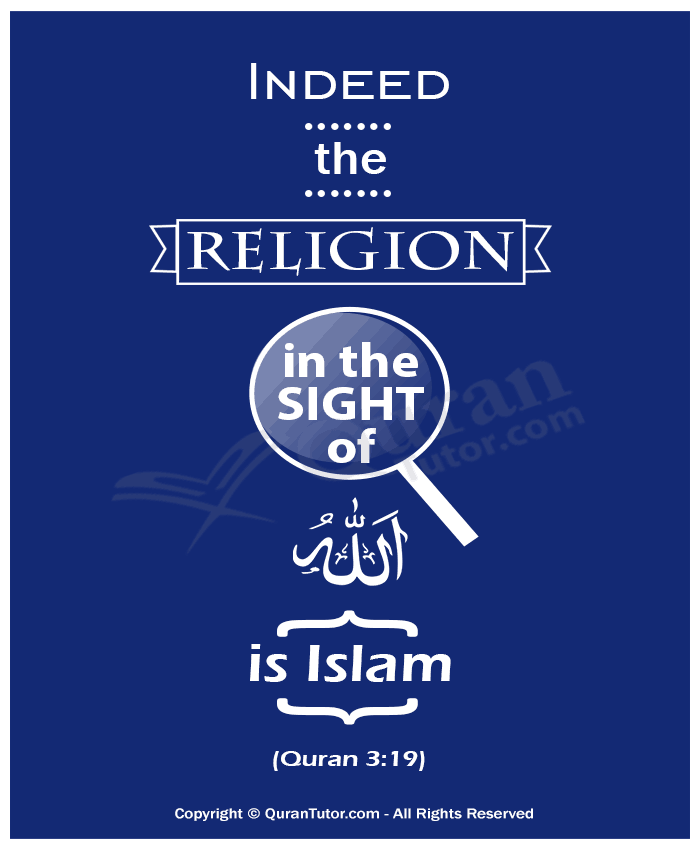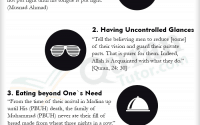Some Major Facts About Islam Which Every Non-Muslim Should Know
Islam is the fastest growing religion of the world and people from all ethnic and cultural backgrounds are entering Islam. Sadly, people have a negative image of it in mind and the perceive it to be a religion that is dark, violent, unjust and promotes violence. This is nothing but a false projection of Islam and people need to know about it without any biasness.
Non-Muslims due to various political and social motivations are also learning about Islam, therefore, it is more than imperative that they are aware of the basic facts about Islam so that they can have a real sense of the religion on contrary to the contemporary projection.
 The lines below will assist the non-Muslims in this regard and discuss a few major facts about Islam, which sadly, are presented in inverse in the biased media.
The lines below will assist the non-Muslims in this regard and discuss a few major facts about Islam, which sadly, are presented in inverse in the biased media.
The Meaning Of Islam:
The word ‘Islam’ has multiple meanings. In some contexts it is translated as ‘peace’ whereas in other contexts it is taken as ‘submission’ or ‘surrender’. Thus, in the very name of the religion there is humility and propagation of peace. The name represents the essence of the religion, which is to establish peace and harmony on the face of this earth and in achieving this peace, there is very little room for using force, rather whoever want to submit to Allah must do out of their heart and not because of some compulsion. Thus, Islam is peace, it loves peace and it wants to spread peace in the world.
Pillars Of Islam:
The structure or building of Islam stands on five pillars. These pillars are rudemantary to the existence of Islam and if any of the pillars is not followed or practiced, the building of Islam might collapse for a Muslim.
- The first pillar is the declaration of faith in which a Muslim proclaims Allah being the only God and Muhammad (PBUH) being His Prophet.
- The second pillar of Islam is the Salat. It is the daily prayers which a Muslim has to perform five times a day. The prayers are a sign of the submission of a Muslim to Allah and when it comes to offering prayer, there is no excuse accepted from a Muslim and it has to be offered under any circumstance.
- The third pillar of Islam is Sawm, which is the obligatory fasting which Muslims undertake in the month of Ramadan. During the whole month Muslims fast from dawn till dusk and refrain from all sorts of eating, drinking and sexual activity.
- The fourth pillar of Islam is Zakat. It is an obligatory charity that the Muslims have to give on annual basis, only if they have sufficient wealth that makes them eligible for offering it.
- The fifth pillar is Hajj. It is the pilgrimage to the House of Allah that a Muslim is to perform. It is obligatory on Muslims who have the health and wealth of performing the pilgrimage.
These pillars need to be observed by every Muslim and there is very little excuse accepted with regards to offering them.
Attributes of Allah:
Although there is the element of linguistic incompetence that cannot explain the attributes of Allah, however, all the attributes that a person can associate with Supreme Being are to be associated with Allah. He is the One, the Just, the Lord, the Sustainer, the Provider, the Best Friend, the Merciful, the Beneficent and so on. Contemporary people associate only the wrathly attributes with Allah, however, the fact of the matter is that the mercy and love of Allah supersede His wrath by long margins.
Quran:
The common impression is that Quran is a book of dogmas that contains religious instructions for Muslims. This is just a single aspect of Quran, it is much more than just a set of dogmas. Quran contains in itself a complete code of life. It discusses, religion, politics, sociology, economics, laws and so on. Therefore, reciting Quran for religious benefits is one of the purposes for Muslims while the rest of it are also equally important and enlightening as well. But to be able to understand this fact, one needs to learn and understand Quran with its true spirit. QuranTutor.com offers Quran courses and classes where everyone can learn to read, recite, and understand Quran verses with Translation to start up with gaining wisdom from the divine book.
Rights Of Women:
Another misconception that the non-Muslims have with regards to Islam is that Islam is a religion that oppresses women. This is a misconception and Islam is perhaps the only religion that talks of the rights of women and gives them equal rights as men. In the eyes of Allah, it is not the gender that makes the difference, rather it is the deeds that a person commits that make one superior to the other. Moreover, in Islam women have all sorts of rights whether they are related to their standing in the family, in politics, in the society or their contribution in the religious circles. Therefore, Islam in no way is a women-oppressing religion, rather it emancipates them from the cultural oppression that women across different cultures of the world face.
Recommended Reading – The Major Roles of Women in Islam and Society
Commonalities With Other Religions:
People think that Islam is some kind of a cult religion that rose out of the blue and has nothing to do with the world or the other religions present in it. This conception is wrong because Islam shares quite a few commonalities with the other Abrahmic religions of the world. Like Christians and Jews, Muslims believe in one God, the arrival of Judgment day and the existence of life hereafter are some of the major commonalities which Islam shares with other religion. Therefore, Islam is not as isolated as the people think of it to be, rather it is as or even more natural compared to the rest of the religions of the world.
Recommended Reading – The Common Beliefs Christianity and Judaism Share with Islam
Social Justice:
Islam is against asceticism and wants its followers to live in a society as humans are supposed to do, however, Muslims in a society have certain obligations and rights. The presence of these rights and obligations is what lays the foundation of a just society where peace and prosperity prevails. Islam gives rights and obligations of rich, poor, the laborer, the hungry people, and everyone in the society by stressing on the establishment of justice in the society.
No Room For Violence:
The religion that has the word ‘peace’ for its name can surely not encourage violence. Islam is against the use of violence especially when it comes to spreading the religion. Quran has numerous verses in it in which Allah Almighty condemns the use of violence, aggression or force for subjugating people. A Muslim is never to be the first in violence and aggression, rather a Muslim can only resort to the use of force when defending him or herself. Therefore, the contemporary image of violence that people have with regards to Islam is actually a misinterpretation of the teachings of Islam.
In a nutshell, there are numerous misconceptions about Islam that are propagated by biased people. It doesn’t matter whether a non-Muslim is learning about Islam for converting or not, he or she should have an objective approach towards the preaching of Islam and weigh them on the bases of what they are and not what other people think them to be.









